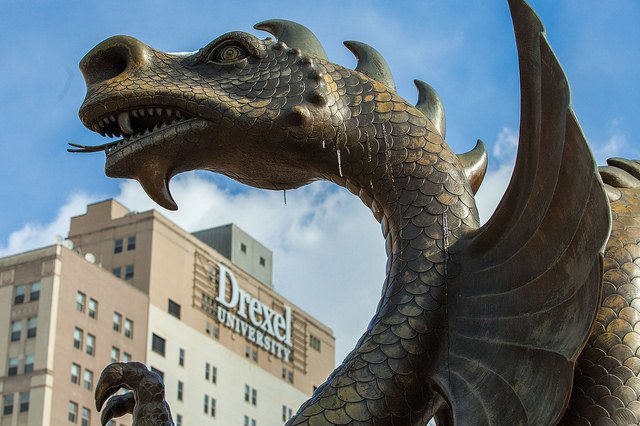
January 24, 2015
 Thom Carroll /PhillyVoice
Thom Carroll /PhillyVoice
Drexel University is beginning to transition after an intense period of growth.
Applications for Drexel's Class of 2019 took a more than 50 percent dive from the previous year, and it was no mistake. In an effort to better identify prospective students who clearly represent a strong fit at Drexel, the university has taken a series of measures to winnow down the number of applications it receives.
According to an Inquirer report from Philly.com, this past fall marked the first time in many years that Drexel charged an application fee ($50) and got rid of its essay-free "VIP fast application".
"They're not hurdles, but pause points," said Randall C. Deike, senior vice president for enrollment management and student success. "It requires a student and his or her family to say, 'Do I really want to spend $50 to go to this place?' "
After years of rapid growth and expansion, the recent changes mark a turning point in Drexel's development. The university had been in a 14 percent minority of schools without an application fee, according to a 2013 survey by the National Association for College Admission Counseling, and while adding medical and law schools during its building boom, the applicant pool skyrocketed an unwieldy 300 percent.
A key problem that arose with this boom was that, while the applications kept rolling in, the number of students who actually enrolled at Drexel fell to 8 percent compared with the national average of 35 percent.
While overhauling the admissions process will carry with it some risks, such as potential rankings changes and adjustments to bond ratings, Drexel will move forward with the plan over an expected 3-5 year period. The university hopes to boost graduation rates, improve freshman-to-sophomore retention, and build new relationships with high school counselors around the country.
"Ultimately, we're going to have a more successful student body with these strategies," said Donna Murasko, a biology professor and dean of Drexel's College of Arts and Sciences.
Read the full story here.